The Week on Stage: From the ‘defiant’ Glad Game to a glittering Anna Karenina
A devastatingly defiant rallying cry, two stars capable of selling an absurdist farce, and Tolstoy updated to a contemporary world of neon outfits and disco-balls
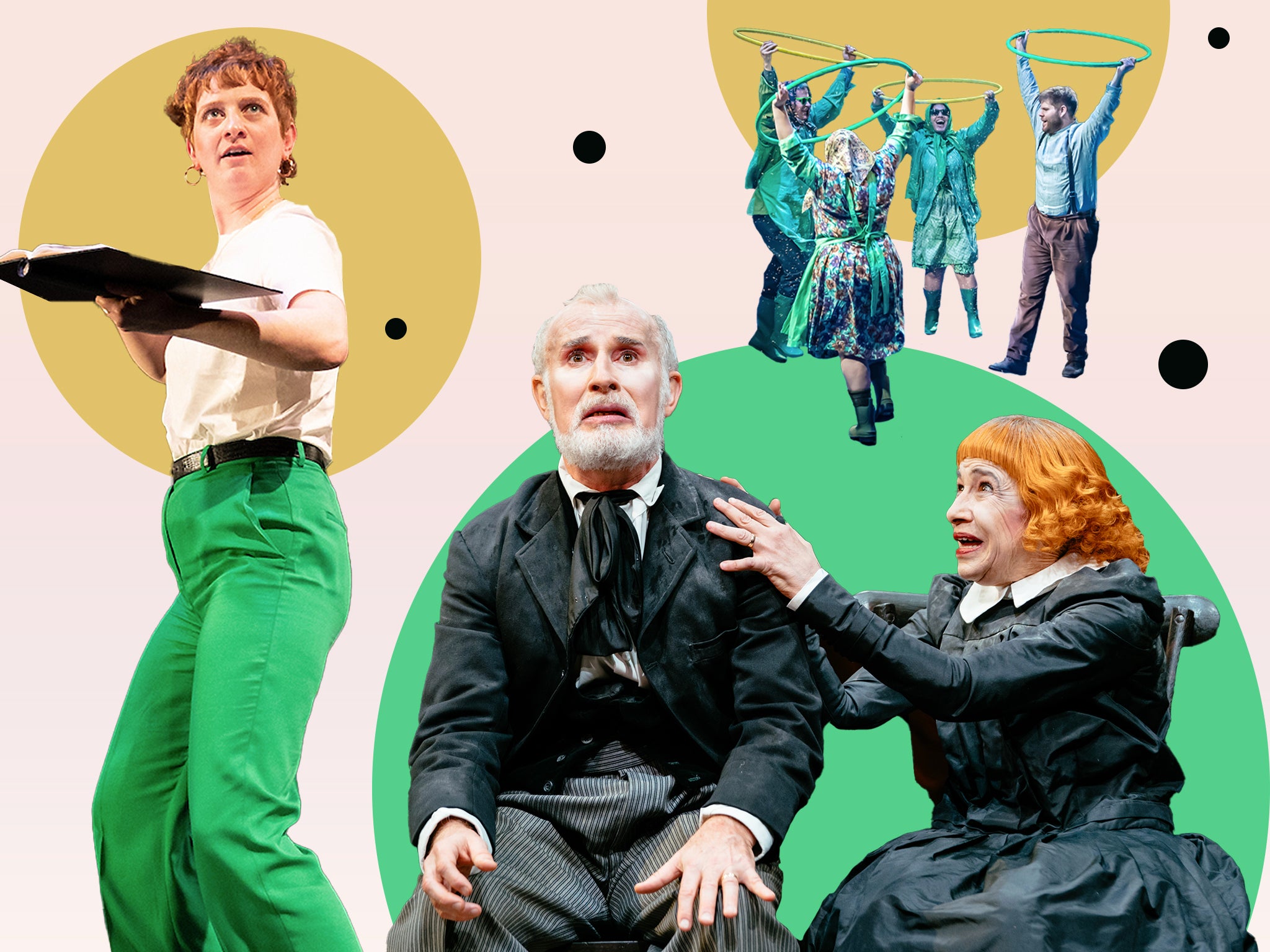
The Glad Game – Hampstead Theatre ★★★★☆
When Phoebe Frances Brown arrives on stage at the Hampstead Theatre, she isn’t hiding anything. Brown was diagnosed in 2018 with incurable brain cancer and as she greets the audience, she admits that she’s probably going to cry – and reassures us it’s OK if we cry too. There are also practical considerations to be discussed. Brown stays seated throughout the performance, a script on her knee and a table of snacks to her side. The tumour sits on the part of her brain that controls speech and memory and she’s tired from the radiotherapy, chemo and steroids.
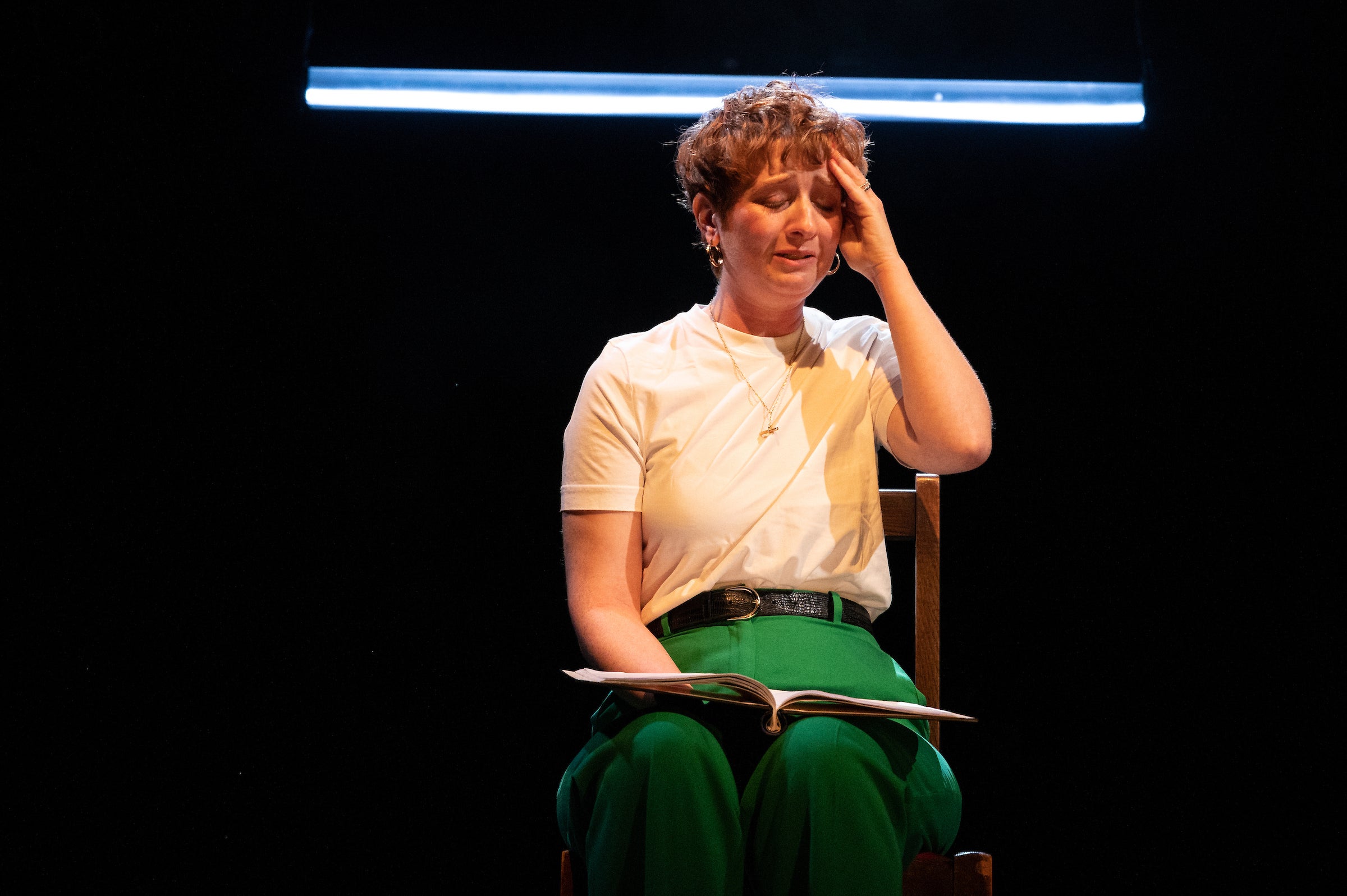
I can’t imagine what Brown’s loved ones must feel watching The Glad Game – as a stranger, it’s devastating enough. Brown takes us through her first cancer symptoms to the present day, passing by family, dating and politics with tragedy and comedy. There are shards of light in among the darkness, providing relief for audience and actor alike. After the uncomfortable, itchy blast of the MRI machine, the nurse who gives Brown a hug prompts a collective exhale. And if your mate doesn’t jokingly insult you the night before your brain operation, is she even your mate?
There are bursts of defiance in Brown’s performance, as she tells us that “this badass motherf***ing b**** is not going anywhere”. A pause. “Just yet. I’ve got too much s*** to do first.” But it’s not constant, seeming to counteract the narrative that people with cancer are fighting a battle. “I’m Phoebe f***ing Brown,” is the actor’s rallying cry. Watching this show, I know that Phoebe f***ing Brown is a name I won’t forget. Isobel Lewis
The Chairs – Almeida Theatre ★★★☆☆
You don’t grow out of your imagination. The comforts afforded by what doesn’t exist remain real, no matter your age. For the Old Man and Old Woman of Eugène Ionesco’s absurdist 1952 farce, play-pretend is as serious an endeavour as psychotherapy as they insulate from the dangers of a post-war world with a cohort of make-believe party guests.
The success of a play like The Chairs lies squarely on the shoulders of its performers. Luckily, in husband-and-wife duo Marcello Magni and Kathryn Hunter (fresh off her role in Joel Coen’s The Tragedy of Macbeth), director Omar Elerian has found stars capable of selling Ionesco’s absurdism. They make even the production’s most outrageous moments, like Old Woman amorously gyrating against an invisible lover, land. While a meandering script – and no intermission – can make The Chairs drag at points, Elerian’s trio of actors keep it bobbing along.
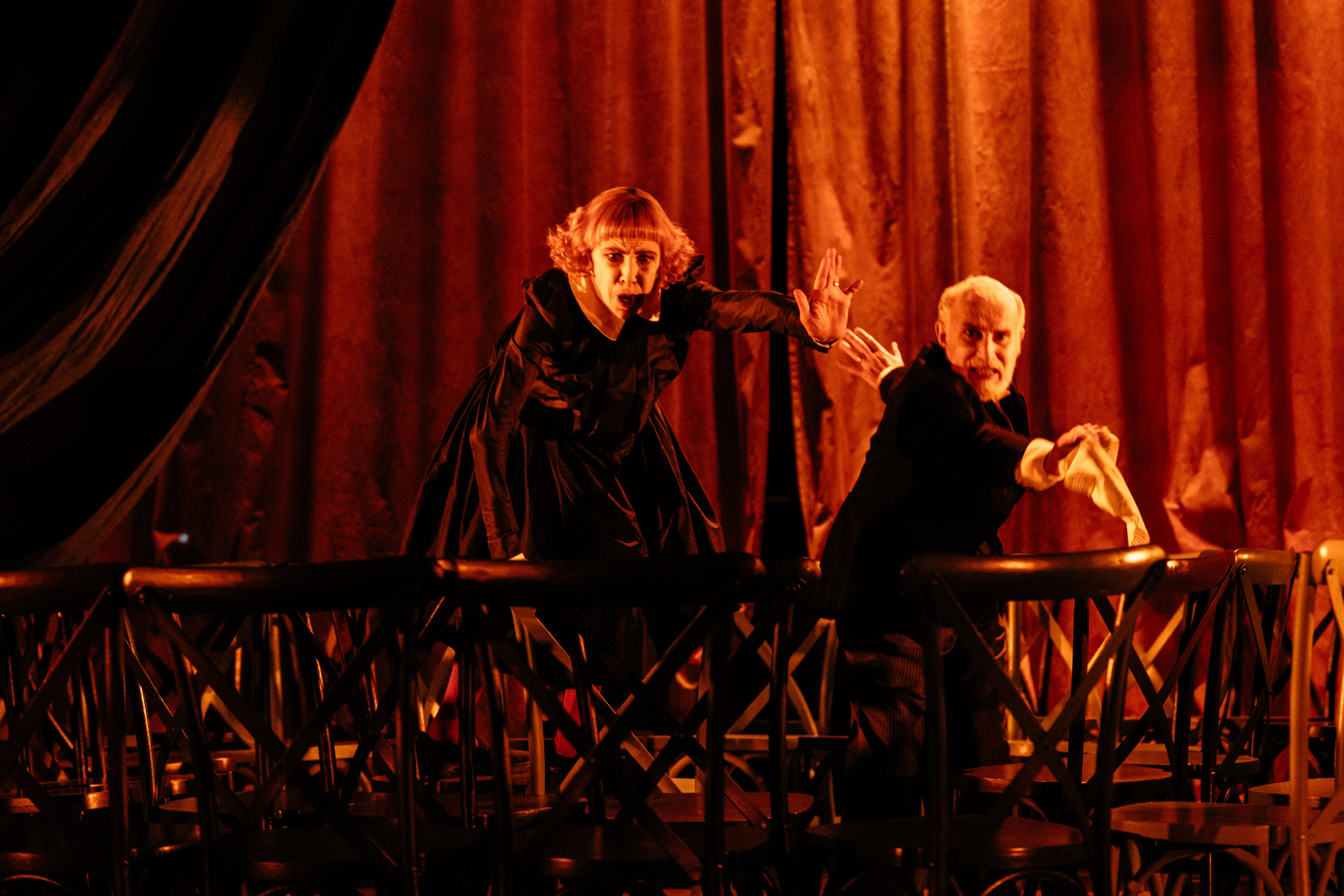
Hunter is wonderful as our coquettish Old Woman. A marionette doll incarnate, the actor – in her black petticoat and shocking red tights – appears to possess utmost control of her every tendon and sinew. It’s a physicality mirrored in dialogue. The pair speak in non-sequiturs; playful language of accelerating cadence and rhyming rhythms. Words somersault from mouths, their meanings dissolving the moment they’re released onto the stage.
But there is a wrenching tenderness between the two actors and an undercurrent of loneliness troubles the waters of even the play’s most comedic elements (egged on by Toby Sedgwick’s Speaker-cum-Stage Hand). Annabel Nugent
Anna Karenina – Sheffield Crucible ★★★☆☆
“This is my story”, says Anna Karenina near the start of this stage version of Tolstoy’s epic novel. She is swept away in a passionate love affair, only to realise she’s trapped in the prison of motherhood, marriage, and society’s strict expectations for how a respectable woman should behave. But in fact, this is two people’s story: the relationship at the heart of Helen Edmundson’s stage adaptation (first performed in 1992) isn’t between Anna and her love, Count Vronsky – it is between Anna and Levin, a parallel character whom she doesn’t meet till near the novel’s end.
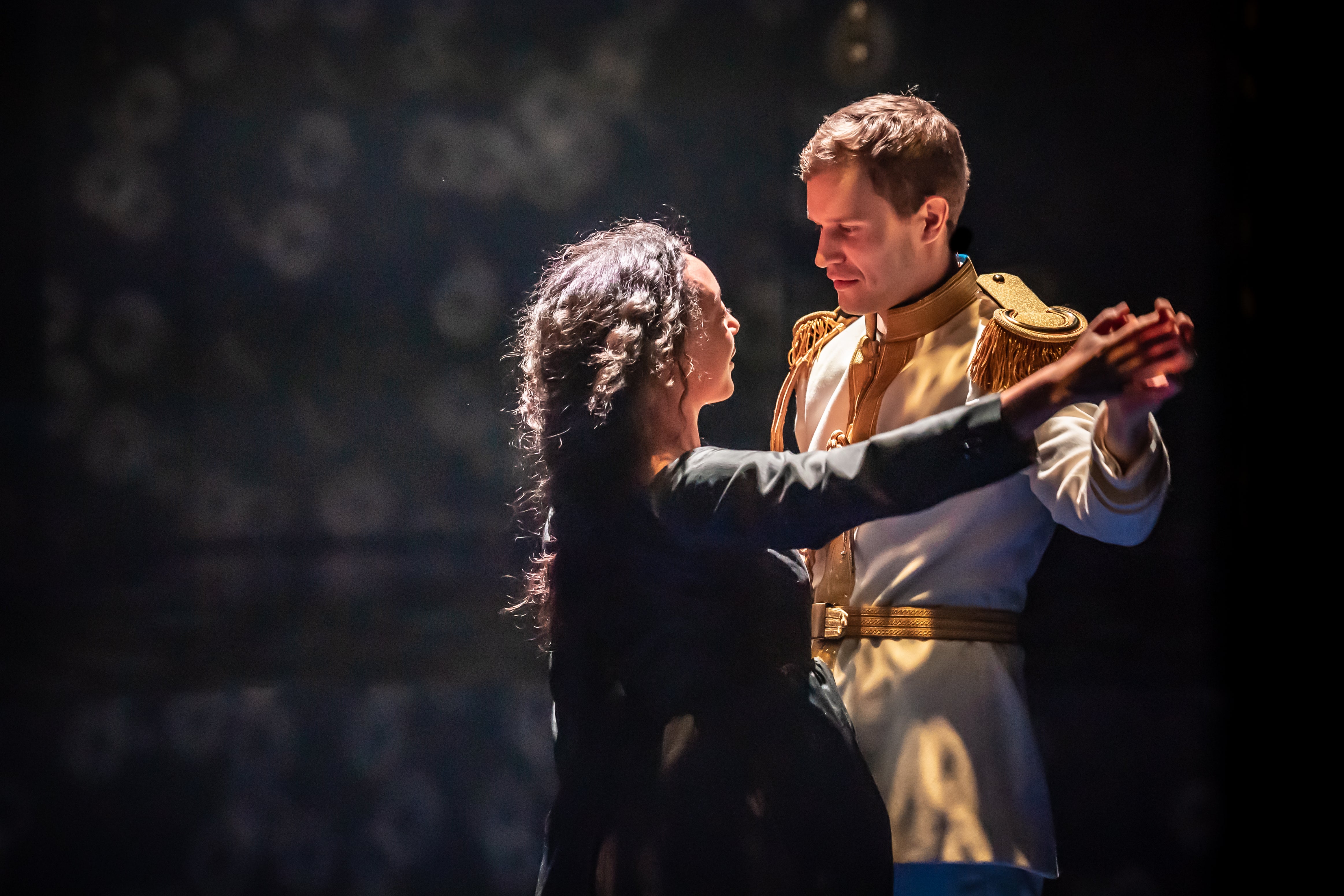
But while both characters are trying to work out how to love, and how to live, Levin’s story always feels secondary, especially in a second half that manages to feel both rushed and far too long. Anthony Lau delivers a stylish production, set in a glittering, heightened contemporary world of neon outfits and disco-balls. Yet while the first half flies by, something goes awry after the interval. The pace stutters, as Anna stumbles towards her infamous death under a train – heavily foreshadowed in sound, lighting and in black paint-smeared figures that haunt her.
Fortunately, the show boasts a vivacious, pungent performance from Adelle Leoncé as Anna: this Emilia alumnus makes Tolstoy’s heroine magnetic, maddening, manipulative… and utterly sympathetic. Holly Williams





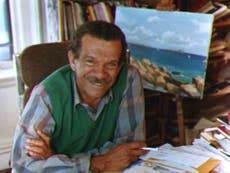
Join our commenting forum
Join thought-provoking conversations, follow other Independent readers and see their replies
Comments